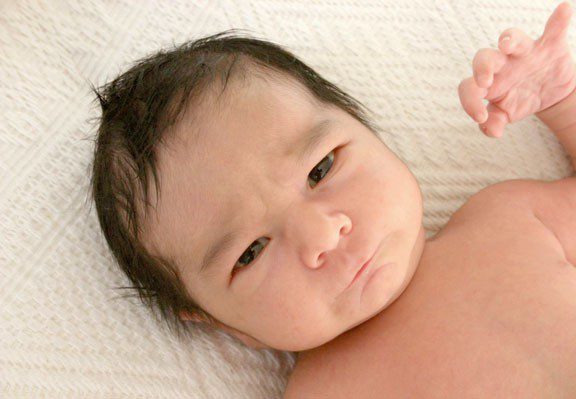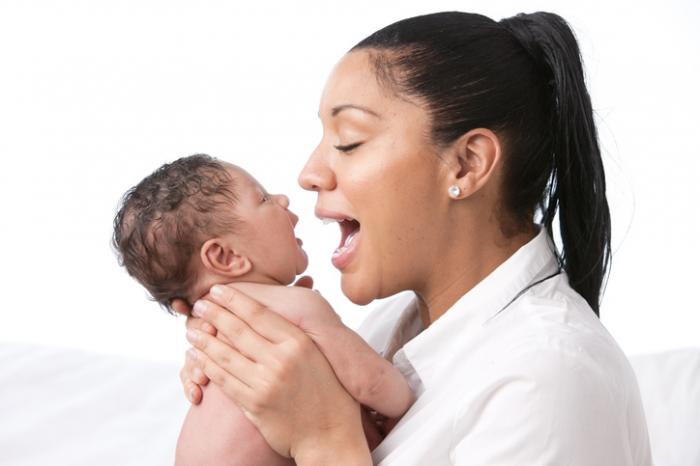OXYTOCIN AND TRUST PATHWAYS OFTEN SET THROUGH GENERATIONS

A study done by the University of New South Wales, UK, says women with troubled maternal relationships have lower levels of the hormone oxytocin and are more likely to have difficulty bonding with their own babies. Apparently, “trust pathways” are set in infancy and the quality of the mother-child bond repeats itself down the generations. […]
MOTHERS’ RESPONSES TO BABIES’ CRYING: BENEFITING FROM AND GETTING OVER NEGATIVE CHILDHOOD EXPERIENCES
Infants whose mothers respond quickly, consistently, and warmly when they cry have healthier emotional development than infants whose mothers are less sensitive to their cries. A new study has found that mothers whose childhood experiences with caregivers was positive and those who have come to terms with negative experiences are more infant-oriented when they see […]
TOUCH INFLUENCES HOW INFANTS LEARN LANGUAGE

Tickling a baby’s toes may be cute but according to studies it’s also possible that those touches could help babies learn the words in their language. Research from Purdue University shows that a caregiver’s touch can help babies to find words in the continuous stream of speech. “We found that infants treat touches as if […]
BRAIN-IMAGING STUDY ADDS NEW EVIDENCE THAT INFANTS TRACK OTHER PEOPLE’S BELIEFS
A brain-imaging study offers new support for the idea that infants can accurately track other people’s beliefs. When 7-month-old infants in the study viewed videos of an actor who saw—or failed to see—an object being moved to a new location, activity in a brain region known to play a role in processing others’ beliefs changed […]
RESEARCHERS STUDY INFANT-DIRECTED SINGING
In our Infant Massage classes, we incorporate parents singing to their babies as soon as the parents feel confident in delivering many of the strokes. When I was developing our program, I found that singing a slow, repetitive, rhythmic lullaby helped both myself and my baby to relax and have fun with the massage. I […]
STRESSED INFANTS FEEL, BUT DON’T SHOW, MORE PAIN

Stressed infants have increased pain brain activity, but this stress was not linked with their behavior, researchers found. Infants with high levels of stress exhibited larger “amplitude cortical nociceptor responses”, or responses to pain, but it was not correlated with “nociceptive behavior,” or behavior exhibiting pain, as measured by brain activity and facial expressions, reported […]
INFANTS PROCESS PAIN IN THEIR BRAINS IN DIFFERENT WAYS BASED ON AGE
Relying on behavioral indicators, such as crying, to assess pain in infants underestimates how much pain babies actually feel when they undergo stressful medical procedures. This has long-term implications on brain development and impacts future adult pain sensitivity, according to a British neurobiologist speaking at the American Pain Society Scientific Summit. “Infants respond to noxious […]
UNDER STRESS, NEWBORN BABIES SHOW GREATER BRAIN RESPONSE TO PAIN
When newborn babies are under stress, their brains show a heightened response to pain, a new study has found. However, you’d never know it from the way those infants act. The findings reported in Current Biology on November 30 show that stress leads to an apparent disconnect between babies’ brain activity and their behavior. “When […]
MOTHERS’ AND BABIES’ BRAINWAVES SYNCHRONIZE WHEN THEY GAZE AT EACH OTHER
Scientists have discovered that making eye contact with babies synchs their brainwaves with adults and could help them to learn and communicate more easily. Researchers already knew that when parents interact with their children their emotions and heart rate synchronize but they have never tested it with the brain until now. In a study of […]
BABIES RETAIN THEIR EARLY EXPOSURE TO FOREIGN LANGUAGES

Babies may be more language-savvy than scientists thought: A study of people who were adopted as babies suggests that infants younger than 6 months may grasp crucial abstract information about their native tongue. They seem to store this information for years even if they don’t hear their native language in the interim. In the study, […]
